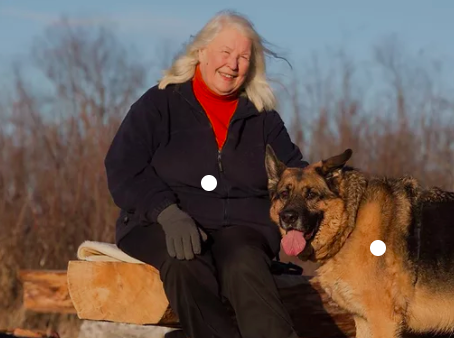EFFECTS OF FOOD ON DOG BEHAVIOUR

GREAT TESTIMONIAL TO THE POWER OF REAL FOOD FROM TURID RUGAAS, THE QUEEN OF CANINE BODY LANGUAGE AND BEHAVIOUR...
Turid Rugaas has always been a bit of a hero of mine. We studied her lessons in depth in Guide Dogs. Fabulous insight, revolutionary at the time. I was lucky enough to have been invited to her symposium some years ago to talk nutrition and we have been friends since. She just sent me this wonderful testimony for the powers of real food in a recent case (I edited it a touch for brevity/clarity):
"I had a client with a dog who was biting everybody. They came to my house so I could see and control what was happening.
The first session was just getting used to my home and me. He was stiff as a pole, alert, worried, stole things and was restless.
He received only kibble which he ate a bit of now and then. He never felt full at all, so after our first meeting, I decided to put emphasis on feeding. .
When he came to me the next day I gave him breakfast and then he fell asleep.
That afternoon I instructed the owner to begin feeding him with proper food.
He went home yesterday, walking towards the car with proper strides, soft muscles in the back and legs, walking normally for the first time instead of stiffly trotting, looking around, enjoying the traffic, people, a helicopter passing - and all with a sweet, curious face.
It was a complete transformation, I have never seen anything like that in such a short time. He was not hungry for the first time in his whole life.
I usually have a calming effect on dogs but this was different. His whole body changed."
As a trainer myself, with a background studying the effects of food on behaviour, I can very much testify to seeing (and now hearing of) the same effect in a great number of dogs. Many trainers have told me the same.
I would add a note to the above that there are two types of starving, and both drive unwanted behaviour in your pet. The first is giving a meat-eater a handful of rapidly digested crackers for breakfast, inducing an actual hunger in the dog soon after, and hungry dogs are significantly more likely to exhibit unwanted behaviours because of it.
But there is also "nutritional" hunger (this is the overfed, undernourished of the world) whereby if you continue to feed a product where studies show 62% of the "complete" kibbles off the shelf in the UK cannot even manage to meet the minimum nutritional standards set out by the kibble manufacturers themselves, you will get a similar effect - an animal not only deficient in certain mind-calming nutrients and bioactive compounds, but one driven to get them.
And hunger is really only one part of it - why is it kids go crazy at birthdays after we give them all the crap food? Is it the rapidly digested carbs? The artificial colours? Dry food has all these en masse but also poor quality protein, stale fats, erratic vitamin content (notoriously deficient in b complex, for example), chemical preservatives that decimates the gut flora (central to good behaviour), on and on.
There is surely no one solution to problem behaviour in your pet, and nothing replaces the advice of a good trainer, but if you're feeding them ultra-processed kibble folks, you sure as hell aren't helping matters. The foundations must be solid before the lessons can percolate in.
Has anyone else experienced this positive change in behaviour in their pet?



